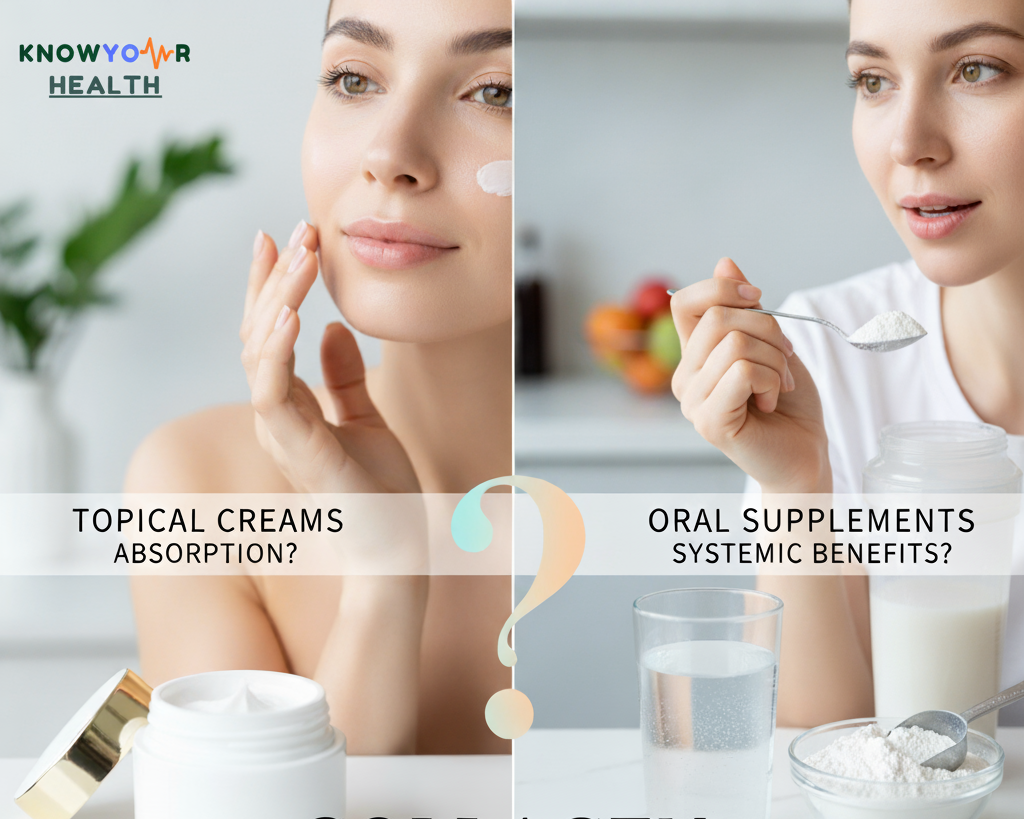Do Collagen-Based Cosmetic Creams Really Work, or Should You Take Collagen Orally? - Research backed
Collagen has become a trendy ingredient in the beauty world, and we see it in everywhere from face creams, moisturizers, serum to daily supplements. Yet, many of us are still undecided about what truly works; should we apply collagen-based cosmetic creams or take oral collagen supplements to improve anti-aging and skin elasticity? In this article, I write about evidence-based research to uncover which choice actually works best for improving skin health, boosting natural body collagen production and promoting anti-aging from within.
Understanding collagen in topical usage - creams, serums, moisturizers
Collagen - one of the most abundant proteins in our body making up nearly 75% of our skins structure, keeps our skin firm, smooth and elastic. As we age, our body’s ability to produce collagen gradually declines — starting as early as our mid-20s and research shows that we lose about 1–2% of collagen each year, leading to visible signs of aging such as fine lines, sagging, and dryness. Because of this, the skincare and supplement industries have focused heavily on collagen — from topical creams enriched with collagen to oral collagen peptides.
Many cosmetic brands promote collagen-infused skincare products to restore elasticity, hydration and reduce wrinkles. But research shows that most collagen molecules in skincare products are too large to penetrate the skins outer barrier (epidermis). Instead of reaching the deeper layer of skin where collagen fibres exist, these large molecules stay on the skin surface.
This means that the added collagen in skincare products moisturize the skin layer, improving hydration and giving the skin a smoother look, however, they do not stimulate new collagen production in deep skin layers.
The types of collagens mostly used in cosmetic formulations are hydrolysed collagen or tripeptide collagen – these are smaller amino acid chains designed to easily be absorbed in blood. Even though they are the lightest collagen-derived molecules, they still face difficulty crossing the epidermis.
A 2019 clinical study published in the Journal of Cosmetic Dermatology; reported that cosmetic application of peptide-based collagen formulations improved skin hydration and elasticity after consistent use. However, these improvements were likely due to interacting with skin cells on the surface and enhanced moisture retention, rather than deep penetration into the deeper skin layer(dermis).
In short, even though hydrolysed collagen creams can make the skin appear smoother and firmer, their effects are limited to the outer skin layers. They cannot rebuild or strengthen collagen fibres in the deeper dermal structure for long term.
The most effective way to boost skin elasticity and collagen production is through oral collagen supplementation. When collagen peptides are taken orally, they’re digested into small amino acids and dipeptides, which enter the bloodstream and reach the skin dermal layer, where they stimulate fibroblast activity —responsible for collagen regeneration.
